We have a winner in the Locate-the-Paris-Rooftops contest! See below.
* * * * * * * * * *
“Have your butcher.”
Those three words in a recipe used to bug me no end when I lived in the U.S. How could I have my butcher do anything when the meat came in a sterile plastic package? I couldn’t even tell how many pieces were in it or how fresh the meat was. I didn’t even have a butcher to have.
Then I moved to Paris, where, as in the rest of France, meat is largely bought at the butcher’s rather than the supermarket. I was free to ask for my meat and poultry to be sliced, cubed, fileted, butterflied or spatchcocked, as well as to pass judgment on its color, fat level and freshness.
With liberty comes fear. French butchers, it turns out, epitomize the successes and failures of my adaptation to and adoption of France. On the one hand, I’ve learned to greet them correctly, engage in snappy dialogue and explain exactly what I want. Like a native-born. On the other, even now I’m occasionally struck tongue-tied and shy when I can’t understand what the butcher is saying or make my choices clear. An “étranger” in a still-strange land.
I put out a call on Facebook for butcher stories and got some wonderful responses.
“I was desperately looking for a fresh pig’s foot so that a first-year medical student I know could practice stitches the next day. Everyone I called was friendly, amused and understanding, including the one who found the foot that saved me.” Laurence Dubaut, Paris
“Roger (a butcher) is the exception that proves the very Parisian rule according to which the customer is always wrong. One day I saw him spend five full minutes lovingly choosing between two lamb chops for a customer he quizzed about every detail: For today or tomorrow? In the oven or in a pan? With what side dishes? What sauce?” — Elaine Sciolino in “La Seduction: How the French Play the Game of Life”
Butchers are a universal part of the French experience: They are frequented by everyone, not just one class or group of people. On just one street in my neighborhood, for instance, is a higher-priced shop, where cooked chickens can cost 15 euros ($18), and, five minutes’ walk away, a halal butcher, whose equally good roast birds are 7 euros.
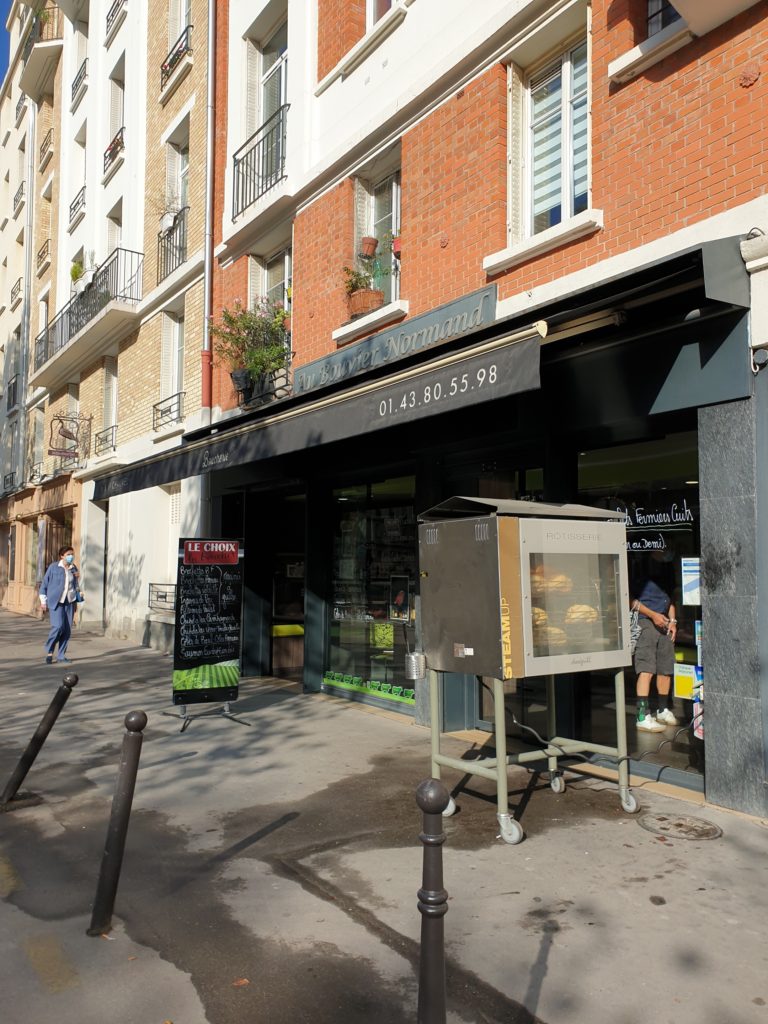
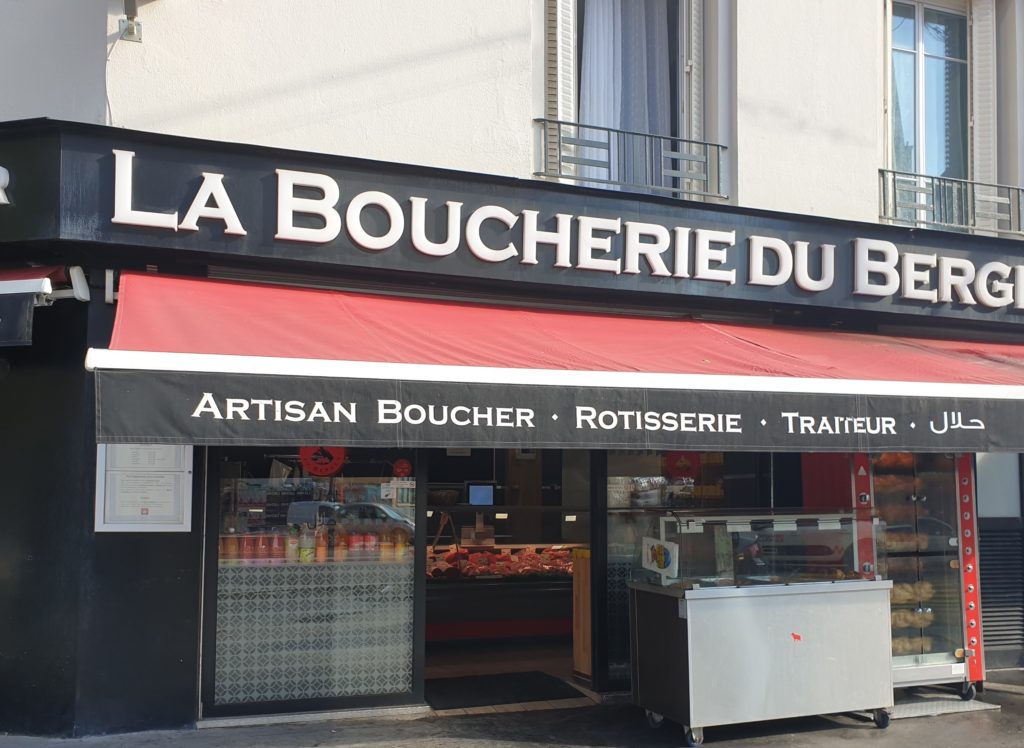
Ordering from the butcher, as from the fishmonger and the cheese shop, entails grappling with a host of questions. What cut? What price? What’s the conversion from pounds to grams? How to prepare it? The person serving me is generally happy to provide cooking instructions – but that doesn’t help much if I’m making a dish they’ve never heard of, like fried chicken.
More than once, I’ve tried to instruct Paris butchers in how to cut up a chicken for frying. I know exactly what needs to be done because my mother taught me. But the chicken that resulted either had bits of the back attached to the drumstick or bits of the breast attached to the wing.
Only one guy got it right: An Egyptian butcher at the outdoor market near where I live. “Leave it to me,” he said before I could start listing my requirements. Sure enough, it was just the way I wanted it.
“Soon after moving to France, I decided to try a lamb recipe. I dutifully looked up all the vocabulary in my dictionary and cookbook before venturing to the butcher. I was horrified and mortified, when, in a crowded shop, I requested gigot d’agneau…only to have the butcher take the entire leg of the animal, complete with the hoof, off a hook on the wall and put it on the scale. I watched the price tick up to something like 90 euros! I can’t remember how, but I got out of it.” – Ann Ditmars Huyck, Providence
In the expat parts of Paris, like the 7th and 16th arrondissements, butchers have learned to adapt to such strange American habits as roasting an entire, enormous turkey for a holiday that is neither religious nor patriotic.
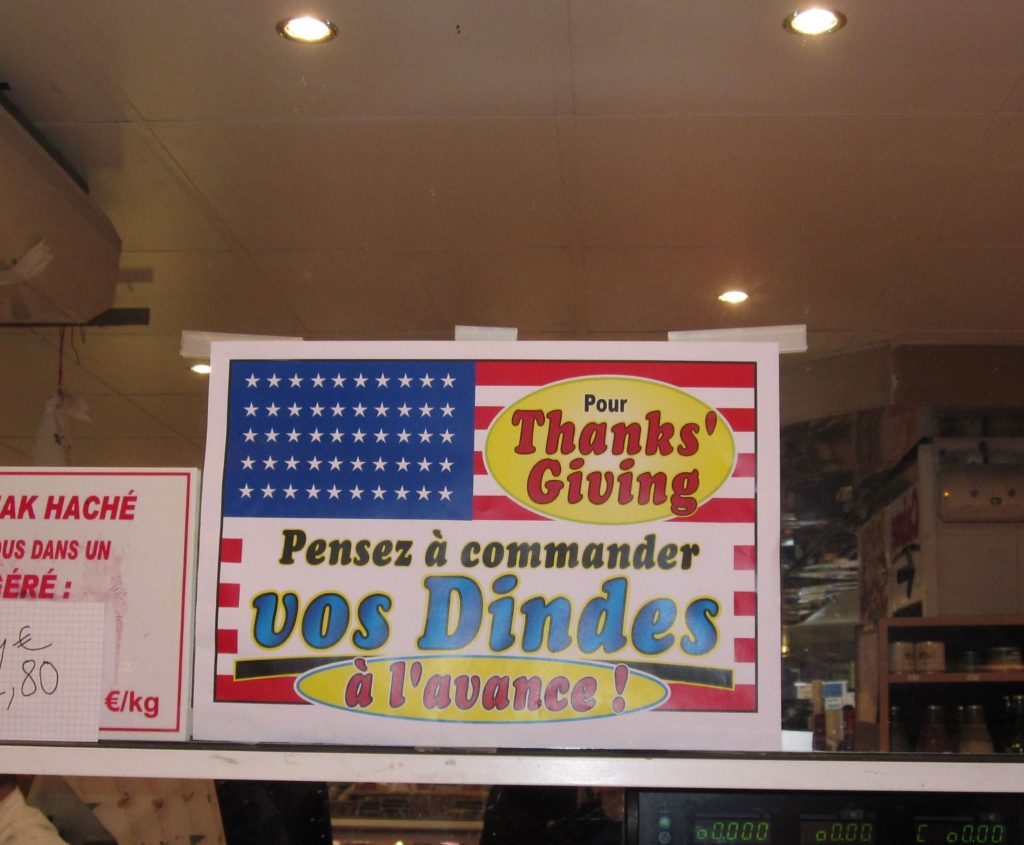
“One year in Paris I ordered a whole turkey from my local butcher for Thanksgiving. A few days later I walked by his shop to find in the window the biggest turkey you’ve ever seen with a sign on it that read “Le Grande Dinde de Thanksgiving Americain.” I looked up and the butcher was waving at me and laughing and clapping his hands.” – Matt Leum, San Francisco
Very rarely, you get rip-offs. The young man pictured below talked me into buying a much more expensive cut than I needed to make blanquette de veau, I suspect because they happened to be out of veal shoulder at the moment.
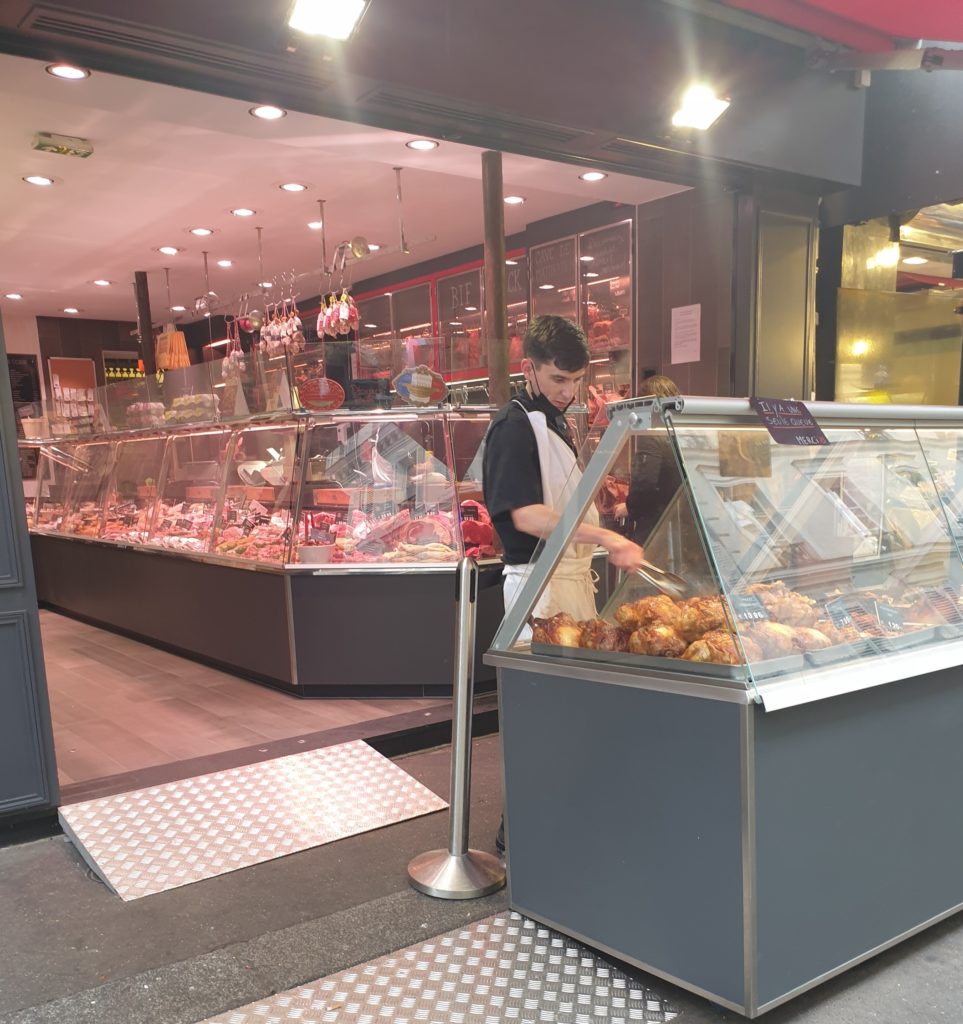
“You should have confidence in me,” he said.
“I should have the right to ask questions,” I said. But I had an attack of butcher-shop insecurity and went for the expensive cut. I guess no amount of time living here will rid me of that.
* * * * * * * *
Our quiz winner, who found the addresses of all six Paris rooftops pictured in the last blog post, goes by Deborah and walks a lot. The addresses are:
- 132-134, rue de Courcelles, 17th
- 12, rue Poncelet, 17th
- Immeuble Lavirotte, 29 Avenue Rapp, 7th
- Printemps Femme, 64 Boulevard Haussmann, 8th
- Hotel de Gunzburg, rue Tilsitt, 17th
- 116 Boulevard Pereire, 17th
Second place goes to A. Craig Copetas, who was close. Third was Ann Dushane, who says she loves looking up. Agreed!
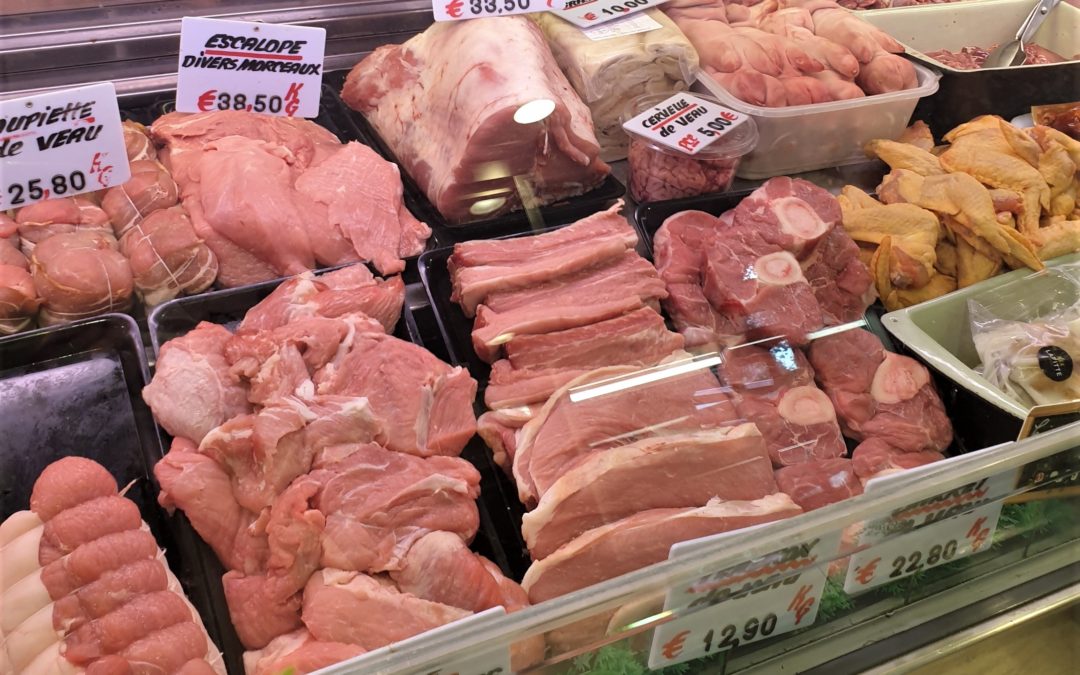
Well, We can understand your trepidation about French butchers. We were staying in Ajaccio, Corsica one summer and found the neighborhood butcher intimidating and not customer friendly at all. Language was not the problem, my wife lived in France. Anyway to make the long story short we retreated to our neighborhood Monoprix which had an excellent meat department of all places.